Filter by

Familial feeling : entangled tonalities in early black Atlantic writing and t…
This open access book discusses British literature as part of a network of global entangled modernities and shared aesthetic concerns, departing from the retrospective model of a postcolonial “writing back” to the centre. Accordingly, the narrative strategies in the texts of early Black Atlantic authors, like Equiano, Sancho, Wedderburn, and Seacole, and British canonical novelists, such as…
- Edition
- -
- ISBN/ISSN
- 9783030586416
- Collation
- -
- Series Title
- -
- Call Number
- 823.709352 YEK f
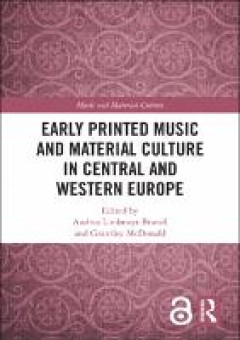
Early printed music and material culture in Central and Western Europe
This book presents a varied and nuanced analysis of the dynamics of the printing, publication, and trade of music in the sixteenth and early seventeenth centuries across Western and Northern Europe. Chapters consider dimensions of music printing in Britain, the Holy Roman Empire, the Netherlands, France, Spain and Italy, showing how this area of inquiry can engage a wide range of cultural, hist…
- Edition
- -
- ISBN/ISSN
- 9780429342844
- Collation
- XXI, 333 p.
- Series Title
- Music and Material Culture
- Call Number
- 070.5794094 EAR e
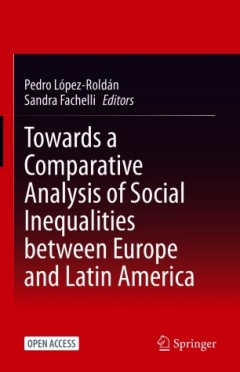
Towards a comparative analysis of social inequalities between Europe and Lati…
This open access volume identifies the common and specific aspects of social mechanisms that generate inequalities, through comparative analyses of different dimensions in which inequalities are expressed. It includes studies on social inequalities in 5 European and 5 Latin American countries, along 11 thematic axes: inequalities in the labour market and labour trajectories; asymmetries in the …
- Edition
- -
- ISBN/ISSN
- 9783030484422
- Collation
- xxiii, 480p. : ill.
- Series Title
- -
- Call Number
- 305.5 TOW t
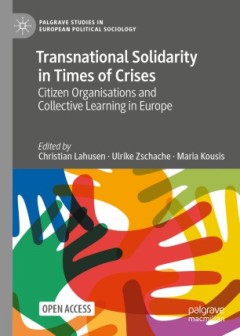
Transnational solidarity in times of crises : citizen organisations and colle…
This open access collection is devoted to an in-depth, qualitative analysis of practices of cross-national solidarity in response to the current political and social crises, from citizens’ initiatives to networks of cooperation among civil society actors. The book analyses existing informal groups at the grassroots, furthering transnational solidarity in three thematic areas: disabili…
- Edition
- -
- ISBN/ISSN
- 9783030496593
- Collation
- xv, 305p. : ill.
- Series Title
- -
- Call Number
- 306.2094 TRA t

Disiecta membra musicae : studies in musical fragmentology
Although fragments from music manuscripts have occupied a place of considerable importance since the very early days of modern musicology, a collective, up-to-date, and comprehensive discussion of the various techniques and approaches for their study was lacking. On-line resources have also become increasingly crucial for the identification, study, and textual/musical reconstruction of fragment…
- Edition
- -
- ISBN/ISSN
- 9783110717884
- Collation
- VI, 398 p.
- Series Title
- Studies in Manuscript Cultures, 21
- Call Number
- 780.940902 DIS d

"Truth" and fiction : conspiracy theories in Eastern European culture and lit…
Several of the most prolific and influential conspiracy theories originated in Eastern Europe. The efficacy of conspiracy narratives can be observed in recent developments in Poland or with regard to the wars waged in eastern Ukraine and in former Yugoslavia. This volume analyses the history behind this widespread phenomenon as well as its relationship with representations of the present in Eas…
- Edition
- -
- ISBN/ISSN
- 9783839446508
- Collation
- 381 p.
- Series Title
- Edition Kulturwissenschaft, 193
- Call Number
- 809.93355 TRU t
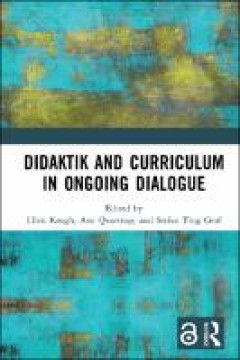
Didaktik and curriculum in ongoing dialogue
Didaktik and Curriculum in Ongoing Dialogue revives the dialogue between the continental European Didaktik tradition and the Anglo-Saxon tradition of curriculum. It highlights important research findings that bridge cultural differences and argues for a mutual exchange and understanding of ideas. Through analyses of shared conditions and cultural differences, the book invites a critical stance …
- Edition
- -
- ISBN/ISSN
- 9781003099390
- Collation
- XV, 261 p.
- Series Title
- -
- Call Number
- 375.001 DID d
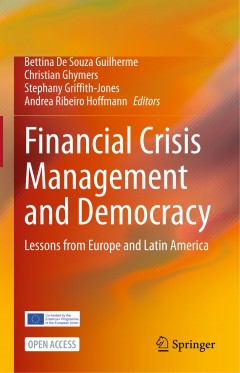
Financial crisis management and democracy : lessons from Europe and Latin Ame…
This open access book discusses financial crisis management and policy in Europe and Latin America, with a special focus on equity and democracy. Based on a three-year research project by the Jean Monnet Network, this volume takes an interdisciplinary, comparative approach, analyzing both the role and impact of the EU and regional organizations in Latin America on crisis management as well as t…
- Edition
- -
- ISBN/ISSN
- 9783030548957
- Collation
- ix, 382p. : ill.
- Series Title
- -
- Call Number
- 339 FIN f

European elites and ideas of empire, 1917-1957
Who thought of Europe as a community before its economic integration in 1957? Dina Gusejnova illustrates how a supranational European mentality was forged from depleted imperial identities. In the revolutions of 1917 to 1920, the power of the Hohenzollern, Habsburg and Romanoff dynasties over their subjects expired. Even though Germany lost its credit as a world power twice in that century, in …
- Edition
- -
- ISBN/ISSN
- 9781316343050
- Collation
- xlviii, 344p. : ill.
- Series Title
- -
- Call Number
- 325.309409041 GUS e

Unequal family lives : causes and consequences in Europe and the Americas
Across the Americas and Europe, the family has changed and marriage is in retreat. To answer the question of what's driving these changes and how they impact social and economic inequality, progressives have typically focused on the economic causes of changing family structures, whereas conservatives tend to stress cultural and policy roots. In this illuminating book, an international group of …
- Edition
- -
- ISBN/ISSN
- 9781108235525
- Collation
- xix, 327p. : ill.
- Series Title
- -
- Call Number
- 306.850973 UNE u
 Computer Science, Information & General Works
Computer Science, Information & General Works  Philosophy & Psychology
Philosophy & Psychology  Religion
Religion  Social Sciences
Social Sciences  Language
Language  Pure Science
Pure Science  Applied Sciences
Applied Sciences  Art & Recreation
Art & Recreation  Literature
Literature  History & Geography
History & Geography